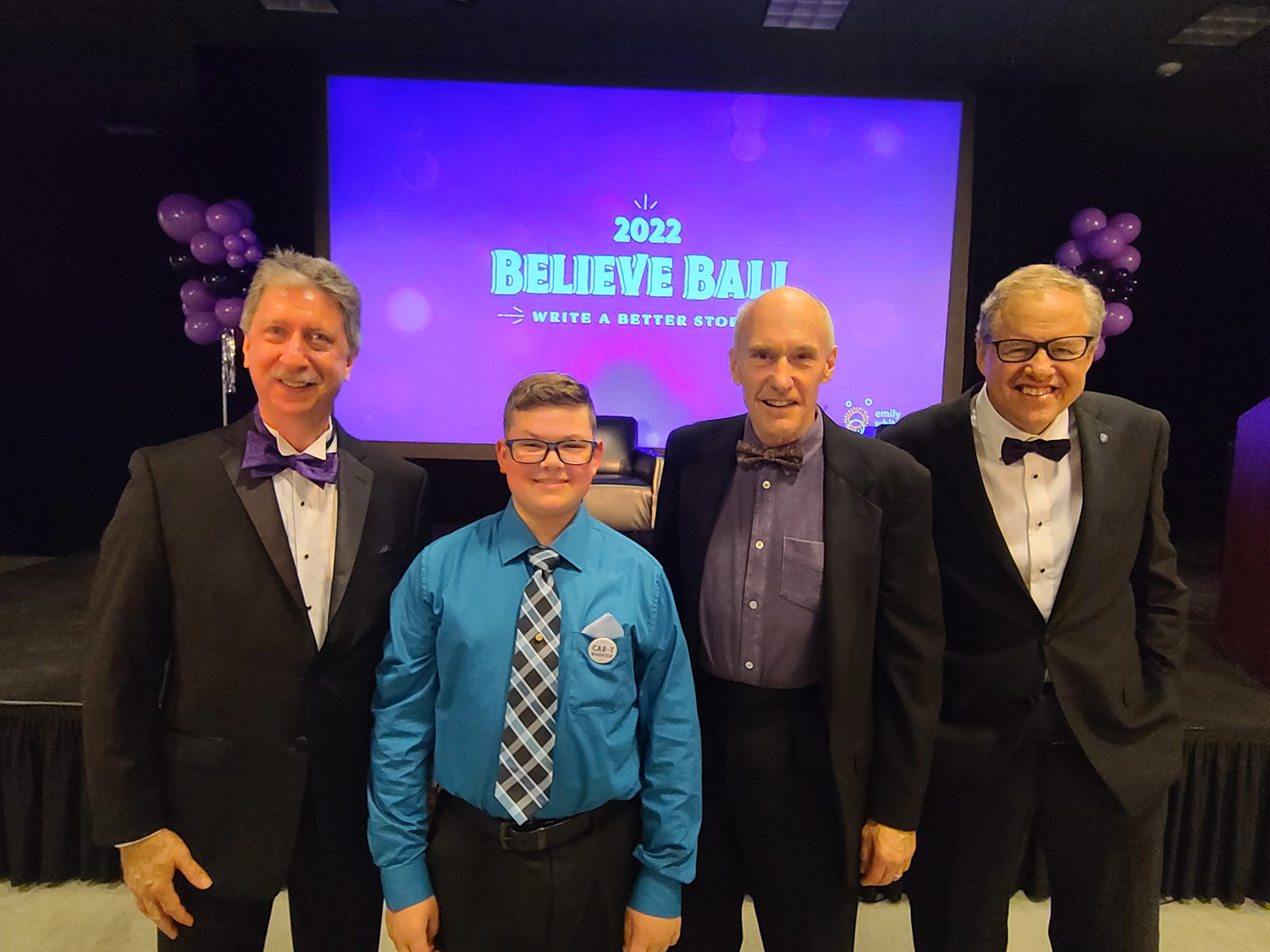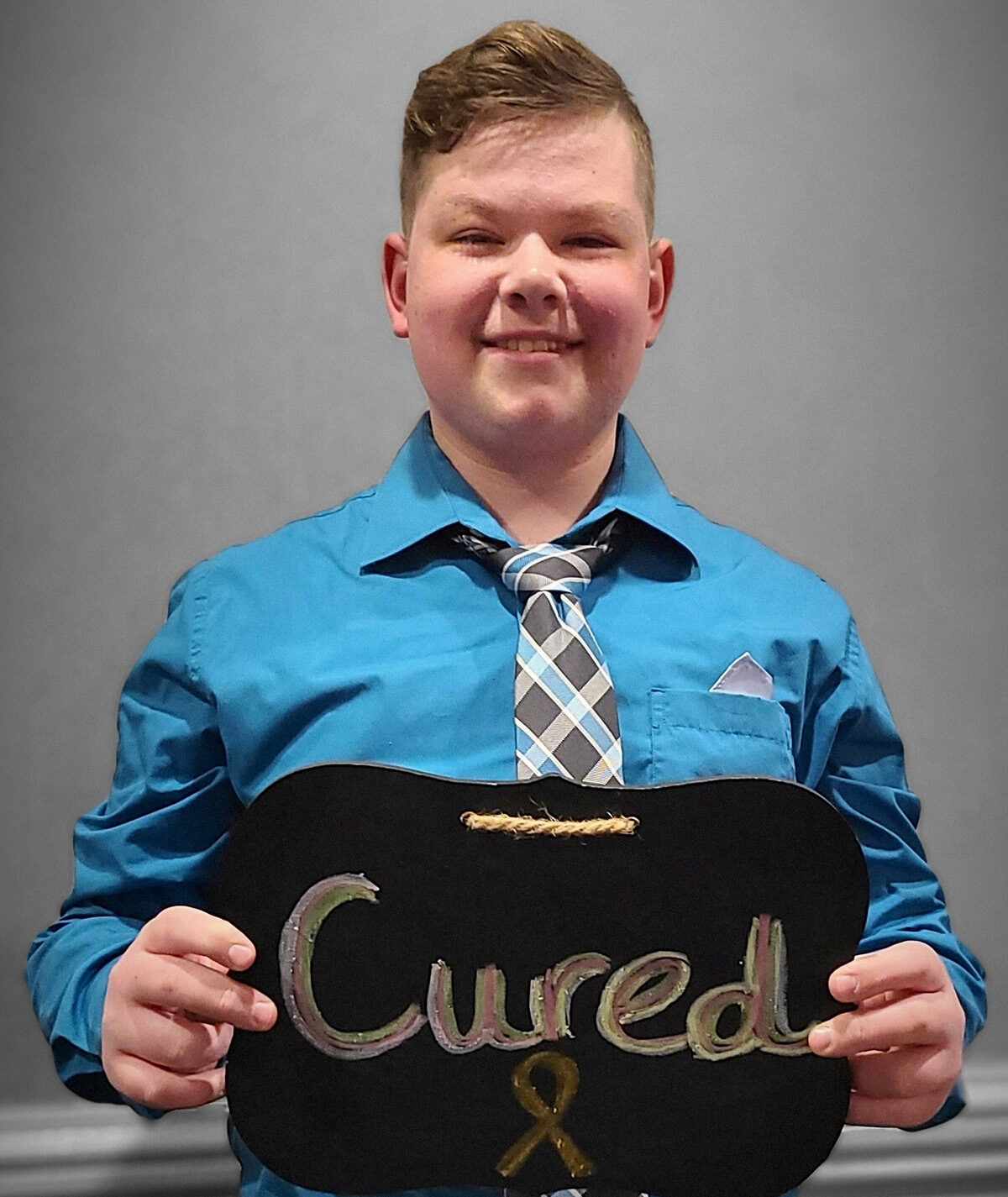
Ten years ago on Halloween, Austin Schuetz was trick-or-treating through a Philadelphia neighborhood. His mom, Kimberly Schuetz, remembers every detail about this night, including the Ghostbusters costume her 5-year-old son wore.
“He loved ghostbusters at the time,” she said.
There are a couple of reasons Kimberly vividly remembers this night. For starters, Halloween is her birthday.
That’s a secondary reason for remembering Halloween 2013, though. The primary reason she remembers this night is because it’s the night she learned – after a fight of more than two years with cancer – that Austin no longer had any detectable leukemia cells in his body.
Austin was the 21st child to receive CAR T-cell therapy in the groundbreaking clinical trial at Children’s Hospital of Philadelphia (CHoP). CAR T-cell therapy, a type of cell and gene therapy for cancer, involves engineering the patient’s own T cells to more effectively find and destroy cancer.
The clinical trial Austin joined was the result of the research of Carl June, MD, of the University of Pennsylvania, whose work was funded by Alliance for Cancer Gene Therapy (ACGT) nearly two decades ago. This trial, which was for patients with leukemia, was the first to use CAR T-cell therapy for children with cancer.
“They’re saying that at 10 years, you’re cured,” Kimberly said. “It’s a word I have always avoided saying. Until now.” — Kimberly Schuetz, mother of childhood cancer survivor Austin Schuetz
Austin was diagnosed with acute lymphoblastic leukemia (ALL) in 2011, just a couple of weeks before his third birthday. After chemotherapy and radiation could not eliminate Austin’s leukemia, leading to a relapse, he had a bone marrow transplant. That also failed to defeat his ALL, and Kimberly was told by doctors that Austin was likely to relapse a second time. This was when the family learned of the CAR T-cell therapy clinical trial at CHoP.

“We told him, ‘The bone marrow transplant didn’t get rid of everything, so we have to do something else to get rid of everything,’” Kimberly said.
Austin enrolled in the study and received his CAR T cells in early October 2013. Four weeks later, on Halloween night, Austin was approaching a house for trick-or-treating when Kimberly received a phone call from a doctor at CHoP.
“I just start screaming, ‘Oh my God! Oh my God. He has no cancer!’” Kimberly said. “I was screaming it, and the lady at the house we were at was alarmed at first. Then she said, ‘Oh my God! Congratulations! Do you (Kimberly) want a beer?!’”
Austin’s reaction?
“He just wanted to keep on trick-or-treating,” Kimberly said, laughing. “We were in a really nice neighborhood, and they were giving the children full-sized candy bars.”
He might not have understood the significance of what he and his CAR T cells accomplished at that time, but now a 15-year-old, Austin recognizes the impact of his cancer survival journey. His family also reminds him of how incredible and inspiring his story has been.
“We always tell him, ‘Your story is very unique and provides hope to patients,’” Kimberly said.
On October 31, 2023, Austin reached an important milestone: 10 years cancer-free. That 10-year milestone is when scientists begin using a word that carries a lot of weight in the cancer community: cured.
“They’re saying that at 10 years, you’re cured,” Kimberly said. “It’s a word I have always avoided saying.
“Until now.”



